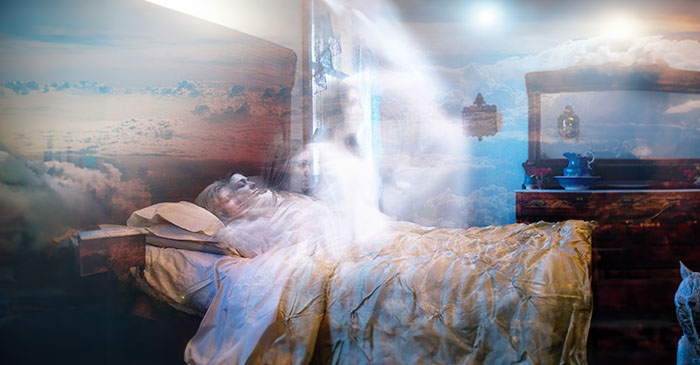Ecclesiastes 3:20
All go unto one place; all are of the dust, and all turn to dust again.
For that which befalleth the sons of men befalleth beasts; even one thing befalleth them: as the one dieth, so dieth the other; yea, they all have one breath (spirit); so that a man hath no preeminence above a beast: for all is vanity. All go unto one place; all are of the dust, and all turn to dust again (Ecclesiastes 3:19-20).
Not only do all men go to the same place when they die, but the beasts also go there. There is no way to avoid this place. No difference how good a man or a beast may be or how bad, they all go to the same place at death.
Whatsoever thy hand findeth to do, do it with thy might; for there is no work, nor device, nor knowledge, nor wisdom, in the grave (hell), whither thou goest (Ecclesiastes 9:10).
If any man has a desire to escape from this place where all go, he will have to get busy and make his plans now in this life, for there will be no such opportunity after death. The place where men and beasts go at death is named here. There is no doubt about it. In Hebrew, it is sheol and is translated by grave, hell, pit, and other words. But it is always the same place.
My flesh also shall rest in hope. For Thou wilt not leave My soul in hell; neither wilt Thou suffer Thine Holy One to see corruption (Psalms 16:9-10).
This is speaking of Christ prophetically. He who took upon Himself the sin of the world died and went to the same place all of us, and also the beasts go at death. And He is the only one who has ever come out of that place, never to go back again. He is the first fruit of them that slept. First fruits indicate a harvest that will follow.
As for me, I will behold Thy face in righteousness: I shall be satisfied, when I awake, with Thy likeness (Psalms 17:15).
Every believer should solemnly repeat these words. Coming out of the grave or hell in the resurrection is an awakening from sleep. This figure is used over and over.
So man lieth down, and riseth not: till the heavens be no more, they shall not awake, nor be raised out of their sleep. O that Thou wouldest hide me in the grave, that Thou wouldest keep me secret, until Thy wrath be past, that Thou wouldest appoint me a set time, and remember me! If a man die, shall he live again? All the days of my appointed time will I wait, till my change come. Thou shalt call, and I will answer Thee (Job 14:12-15).
Job realizes that death is a lying down. Being a Gentile, he hoped for a Resurrection for the new earth or paradise. He prayed to be hidden in hell or the grave till God's wrath was over. But he wanted God to set a time for his awakening and remember him. Job did not believe in the heathen concept of the soul, that it lived on and on. But the real question is whether a man will live again after death, not keep on living. Job expects a change someday, just as did Paul. And Job expects to answer when the Great Shepherd calls at The Great Resurrection morning.
How different this Bible Truth is from the superstitions of the heathen! They say that there are two places the dead go to, not one. And they say that there is consciousness in Sheol, the grave, or hell. They believe all this because they have no knowledge of Salvation or Resurrection.
Now if you would take your concordance and look up Sheol, grave, dust, and hades, you will be surprised to find them so closely related. For truth, go to the Word of God.
The heathen is much exercised as to how to keep from going to Sheol or hell. The Christian knows that he is going there but is prepared to escape from it, i.e., by Resurrection.
The heathen have the concept that man is immortal and will live on and on forever. So he has surmised that man has an endless future of either happiness or misery. But those who know God and His Word know that man is a soul and that souls die. They also know that as for the future, they either have life or they perish (John 3:16). That is, they either live in Resurrection or they face judgment. God has made the terms by which they can live.
The first occurrence of hell or Sheol in the Bible is Gen 37:35. Jacob expected to go there when he died. Job prayed that he might be hidden in that place till God's wrath was passed (Job 14:13). And, our Lord was there three days and three nights.
Almost 3500 years ago, Moses wrote the truth about The Hope of Resurrection. He made it plain that man lived (again) by believing God (Deut 8:3). This is still God's Truth. It has not changed.
It is wise to look into this subject very carefully, for the Christian should have it clear about the difference between his Hope and that of the heathen around him. And he must not believe that Plato was one of the church fathers and had the truth.

